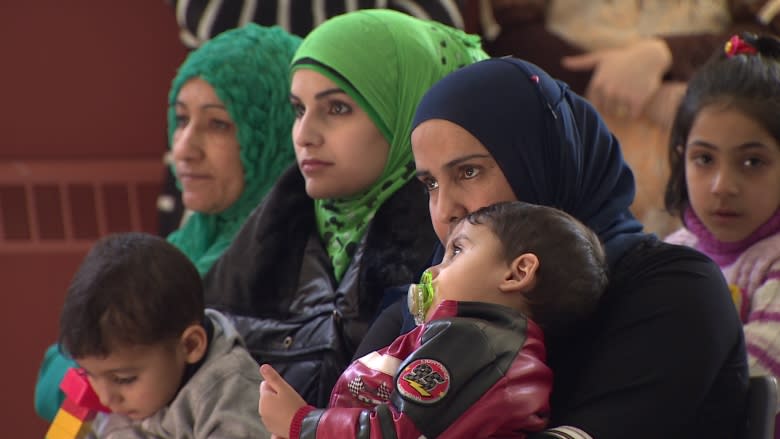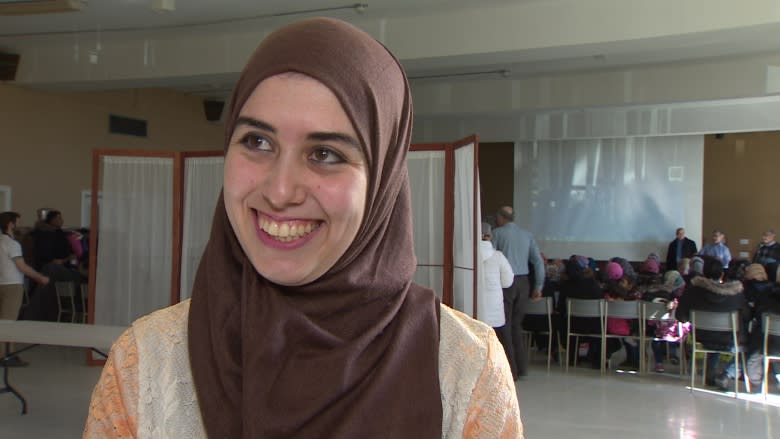For Syrian refugees in St. John's, a licence to drive is the next challenge
After months of adjusting to their new lives in St. John's, many Syrian refugees are ready to start looking for work.
That's the message that came through at an orientation event held by the Association of New Canadians in St. John's earlier this week.
The event was planned to help give new refugees living in Newfoundland an idea of what their rights are as workers and residents of St. John's, and to educate them on the procedures in place to help them get drivers' licences, apply for jobs, and more.
"It's really just learning about Canadian culture, Canadian values, and that realizing that their belief system will also be respected and that they'll be able to become part of our community," said Carey Majid, the executive director of the Newfoundland and Labrador Human Rights Commission.
Majid said the event was another opportunity for the refugees to learn more about their new home.
Ready to start giving back
Raya Majid, an immigrant from Iraq, was on hand at the event to interpret the speeches from the Royal Newfoundland Constabulary and the Newfoundland and Labrador Human Rights Commission for the refugees.
"I'm working with the ANC trying to set all the Syrian refugees and help them go through all the processes of their lives here in Newfoundland," she said.
According to Majid, many of the refugees are ready to start contributing and giving back to their communities.
She said that in the time since they've arrived, many of their kids have been placed in schools and they've begun to learn English.
The next big step is to apply for drivers' licences.
"It will be more convenient for them. They will feel more like they're stable here and that they're enjoying their life here," she said.
"When they have their own cars they can visit, they can go around the city, they would have more time to explore the city and their province too."
Majid said once the refugees have licences and their own vehicles, they will have increased mobility to look for jobs, drop their young children off at school, and participate in community events.
"Many of them are asking me, when will you help me look for a job," she said.
"A lot of them are farmers back in Syria, many of them are drivers, we have some carpenters, and many different fields."
She said they're ready to have their own income, and start contributing to society in their new country.



